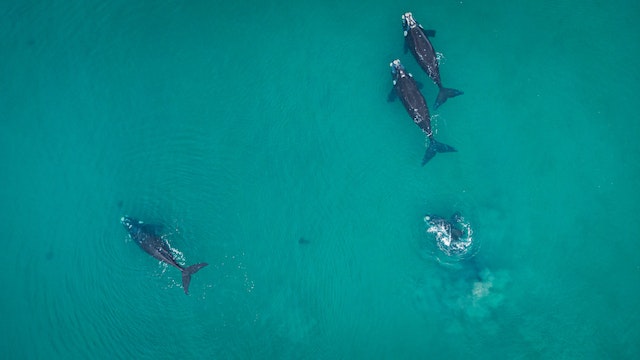Bowhead whales, with their remarkable immune system adaptations, are providing valuable insights into fighting cancer. Researchers are studying these majestic creatures to understand the mechanisms behind their resistance to cancer and how we can apply that knowledge to develop new strategies for combating the disease in humans. Here are some ways in which bowhead whales are teaching us about fighting cancer:
1. Longevity and Aging: The exceptional longevity of bowhead whales suggests they possess mechanisms to combat age-related diseases, including cancer. By studying their aging processes and understanding how their cells and tissues remain healthy over extended periods, we can gain insights into preventing cancer and promoting healthy aging in humans.
2. DNA Repair: Bowhead whales have highly efficient DNA repair mechanisms, which minimize the accumulation of genetic mutations. By investigating their DNA repair processes, scientists can identify key repair pathways and genes that contribute to their resistance to cancer. This knowledge may help develop strategies to enhance DNA repair in humans, reducing cancer risk.
3. Immune System Adaptations: Bowhead whales have unique immune system adaptations that contribute to their ability to combat diseases, including cancer. Their immune cells, such as natural killer cells, exhibit enhanced capabilities for recognizing and eliminating cancer cells. By studying the specific mechanisms and genes involved in their immune response, we can develop immunotherapies and immune-based treatments for cancer.
4. Anti-inflammatory Responses: Bowhead whales possess mechanisms to suppress inflammation, which is linked to increased cancer risk. Understanding how they regulate and modulate inflammation can provide insights into developing anti-inflammatory therapies for preventing and treating cancer in humans.
5. Comparative Genomics: Comparative genomic studies comparing the bowhead whale genome to those of other mammals, including humans, have identified unique gene variations associated with cancer resistance. These genetic differences offer clues about the pathways and molecular processes involved in preventing cancer. Targeting these pathways in human cancer treatments may lead to improved outcomes.
6. Translational Research: The knowledge gained from studying bowhead whales is being translated into practical applications for cancer research. Scientists are working on developing therapies inspired by the bowhead whale’s immune system, such as immunotherapies that harness the body’s own immune defenses to target cancer cells.
The insights gained from bowhead whale research are promising, but it’s important to note that translating these findings into effective cancer treatments in humans is a complex process that requires further study and development. Nonetheless, by exploring the unique adaptations of these extraordinary creatures, we are uncovering new avenues in the fight against cancer and moving closer to improved prevention and treatment strategies.











